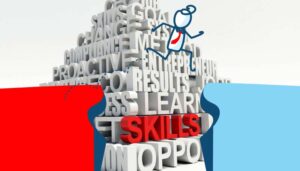Achieving interview success often hinges on understanding what potential employers are looking for and preparing your answers accordingly. Interviews can be daunting, but with the right preparation, you can present yourself as the ideal candidate for any role. This blog breaks down typical interview questions, sheds light on what employers seek in your responses, and offers tips to prepare answers that underscore your suitability for the position.
Understanding What Interview Success Means to Employers
Employers typically ask questions to evaluate your qualifications, professional experience, problem-solving skills, ability to work under pressure, cultural fit, and motivation. Interview success is not just about what you say but how you say it.
“Tell Me About Yourself”
This is often the opening question and your chance to make a strong first impression. Employers are looking for a concise, confident response that covers your current position, past experiences relevant to the job you’re applying for, and a touch on your future aspirations.
Tip: Craft a short narrative that showcases your journey, highlighting experiences and skills that align with the job description.
“What Is Your Greatest Strength?”
Employers want to understand how your strengths can contribute to their team’s success. They seek qualities that match the job’s requirements, such as teamwork, leadership, or problem-solving.
Tip: Identify a highly relevant strength to the role and provide a concrete example of how you’ve applied this strength in a professional setting.
“Why Do You Want to Work Here?”
With this question, employers assess your enthusiasm for the role and understand the company’s values and mission. Interview success here means showing that you’ve done your homework and are genuinely interested in contributing to the company’s goals.
Tip: Mention specific aspects of the company culture, projects, or initiatives that excite you and link them to your skills and experiences.
“What Is Your Greatest Weakness?”
Employers ask this to gauge your self-awareness and commitment to personal development. The trick is to be honest yet strategic, choosing a weakness you’re actively working to improve.
Tip: Discuss a professional weakness and then focus on your actions to overcome it, showing your dedication to growth.
Digging Deeper…
“Can You Describe a Challenge You’ve Overcome?”
This question allows interviewers to assess your problem-solving and resilience. Interview success hinges on demonstrating your ability to navigate obstacles professionally.
Tip: Choose a specific example that resulted in a positive outcome and highlight what you learned from the experience.
“How Do You Handle Stress and Pressure?”
The goal here is to understand how you maintain productivity and quality of work under stress. Employers look for candidates with effective stress management techniques.
Tip: Share specific strategies you use to manage stress, ensuring they are healthy and productive.
“Where Do You See Yourself in Five Years?”
This question helps employers gauge your ambition, career direction, and longevity with the company. They want to see your thoughts about your future and how the role aligns with your career goals.
Tip: Express your long-term career goals and how the position fits into that plan, showing ambition and realism.
Beyond the Basics…
“Why Should We Hire You?”
This is your chance to sell yourself. Employers want you to match your qualifications, experience, and skills directly to their needs.
Tip: Highlight your unique skills and experiences that directly align with the job description, making a compelling case for why you are the best fit.
“How Do You Prioritize Your Work?”
Understanding your time management skills is crucial for employers. They want to know that you can efficiently juggle multiple tasks and deadlines.
Tip: Explain your method for assessing the urgency and importance of tasks, possibly illustrating with an example from your past work.
“Tell Us About a Time You Made a Mistake.
This question concerns your ability to admit mistakes and learn from them. It’s also a test of your honesty and integrity.
Tip: Choose a real but not catastrophic mistake, discuss what you learned from it, and describe the measures you took to ensure it didn’t happen again.
Preparing for Interview Success
Preparing for these questions involves reflecting on your experiences, practicing your responses, and researching the company. Here are a few tips to ensure your preparation leads to interview success:
Research
Research the company’s website, recent news articles, and industry trends to understand its challenges and how you can contribute.
Practice
Rehearse your answers out loud, focusing on clear, concise, and confident delivery.
Reflect
Think about your career highlights and how they align with the role you’re applying for.
Interview success is not just about answering questions correctly; it’s about communicating effectively, showing enthusiasm for the role, and demonstrating your background makes you the best fit for the job.
The Bottom Line
Interviews are your opportunity to showcase your skills, experiences, and fit for the role. Understanding what employers are looking for and preparing your responses accordingly can increase your chances of interview success. Preparation is critical, know your strengths, understand the company, and practice your responses to common interview questions.
To enhance your interview preparation further, consider exploring resources like Glassdoor for company reviews and interview experiences, LinkedIn Learning for skill development, and Indeed’s Career Guide for more tips on acing interviews.




